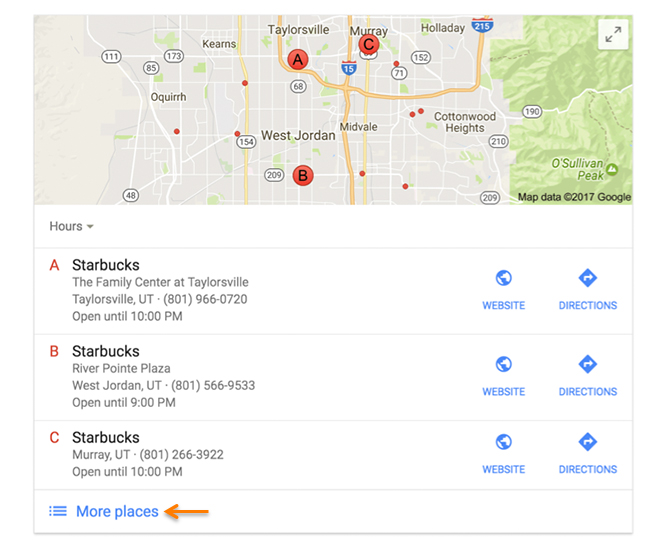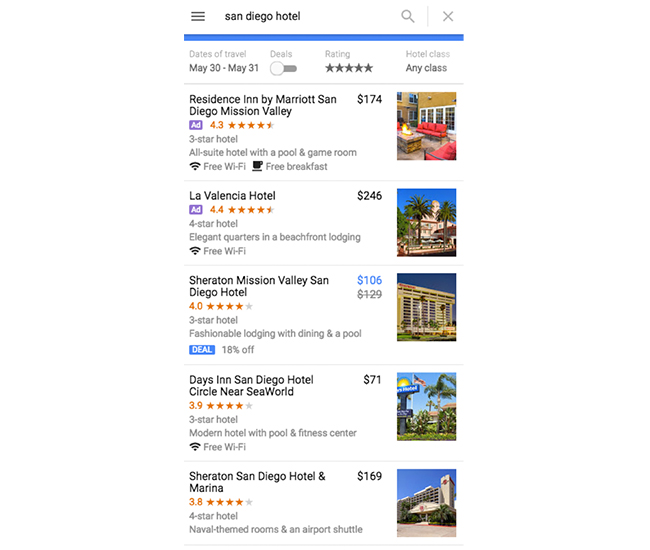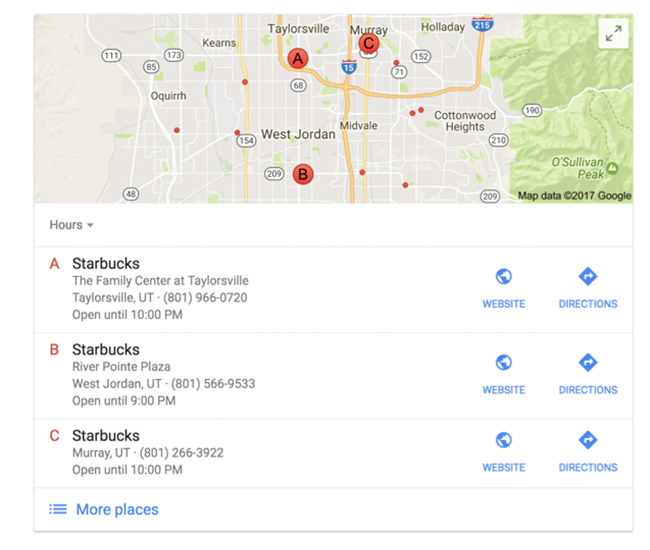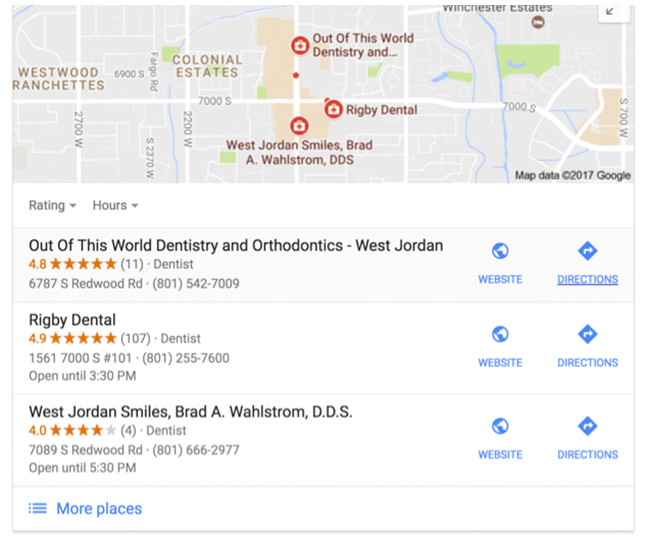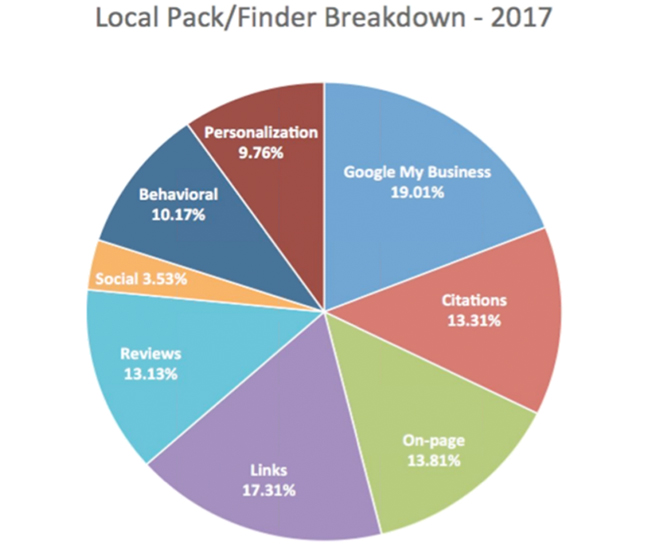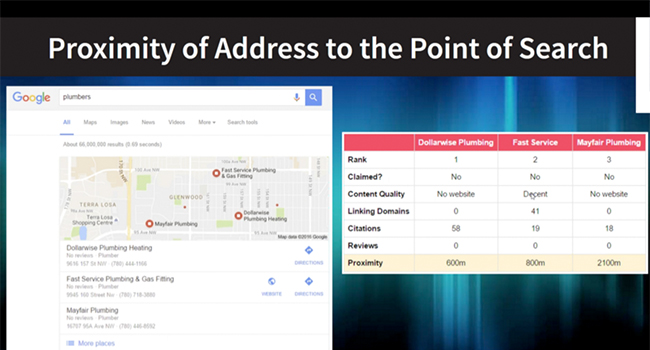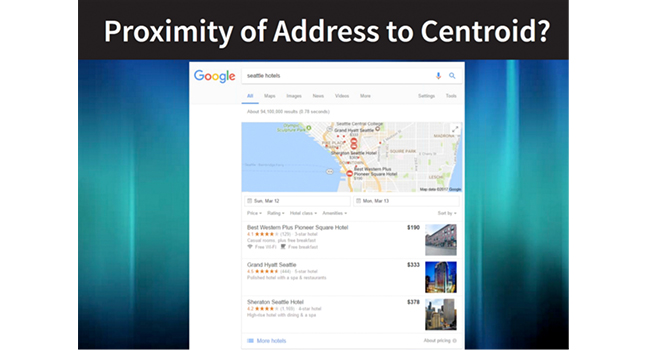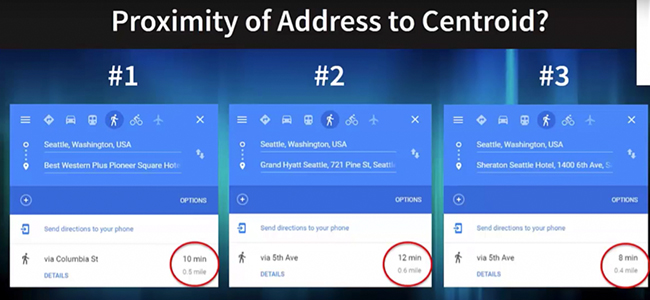Google Hotel Ads, The OTA Disrupter Your Hotel Needs Now
Back in July, we shed light on how direct bookings can be more profitable than OTA bookings for hotels, even when you factor in media costs. The development and execution of a superior direct booking strategy for our hotel clients has always been GCommerce’s mission. Why? Because we were born out of a hotel management company which means we’ve always tried to focus on what’s best for the hotel. It’s in our DNA.
Now, what if I told you that there was a risk free direct booking channel that can drive an average of 8% of total web bookings at an average 5% conversion rate? One that only incurs a cost when it produces a stay that actually occurs, and is less than a commission payment to an OTA. Would you be interested? Is there anything that would hold you back from giving it a try?
Through the pandemic, Metasearch has evolved to not only be a top producing revenue channel to drive direct bookings, it has shape-shifted to provide hotels with a risk free billing option during a period of uncertainty in the travel industry that saw record cancellation rates. It is a powerful addition to the arsenal in the fight against hotel booking contributions coming from OTAs. Why is that important?
- Direct bookings are more profitable to the hotel
- It helps hotels prepare for a cookieless world future by owning the guest data through direct bookings for remarketing purposes, which helps long term profitability.
While some hotels have been slower to adopt this channel into their direct booking strategy, there really is no better time to try it. The OTA’s have been owning this ad space since its inception because they know its power and profitability. OTAs like Expedia have even been fighting Google with government lobbyists because they feared the impact this evolution of Google’s travel vertical would have on their business model. Google has changed their travel planner and hotel search over the years with the specific purpose of funneling users to the Google travel planner and hotel search tools.
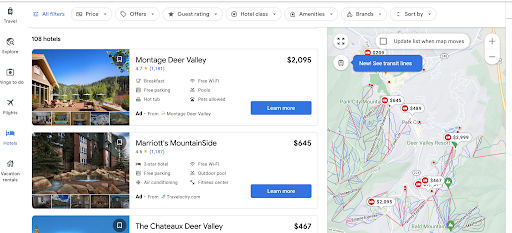
They have pushed the visibility of Google Hotel Ads into the knowledge panel, into the SERP and as the ultimate call to action in Google hotel search.
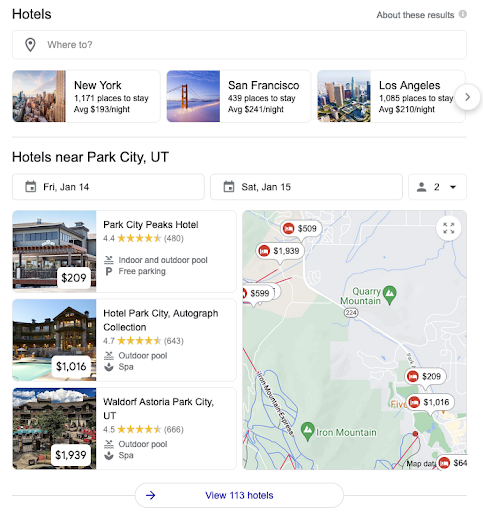
And they have handed hotels the keys to driving more direct bookings and relying less on the OTAs. How? Because Google has become the OTA. Consumers no longer have to navigate to Expedia or Booking.com to comparison shop. They can do it directly within Google.
Now ask yourself again. What is stopping me from distributing my hotel’s inventory and rates to Google Hotel Ads and other metasearch channels? Here’s why your hotel should be advertising with direct inventory and rates on Google Hotel Ads and metasearch:
- You can advertise risk free with a pay-per-stay contract type, paying only when a stay is consumed
- Google has invested time and resources to increase visibility to this channel across its entire ecosystem. More visibility = more awareness, traffic and bookings
- The OTAs are already there, eating up your hotel’s bookings and sending you the robust commission bill
- Google Hotel Ads is owning the hotel comparison shopping game and giving hotels the chance to drive the bookings directly through their own website
- It can increase your hotel’s profitability by helping to drive more direct bookings - an average of 8% of total web bookings and an average conversion rate of 5%
- More direct bookings helps you own the guest data and better prepare your business for a world without 3rd party cookie tracking
Can you still think of a good reason not to advertise your hotel’s direct rates and inventory feed to Google Hotel Ads and other metasearch channels? Probably not. Now that you’re ready to focus on this channel, how can you make sure it’s successful?
- Make sure you map the best available rate found on your booking engine landing page to Google Hotel Ads and other metasearch channels including TripAdvisor, Bing Hotel Ads, Trivago and Kayak. Not only is the price accuracy of your feed to what’s on your landing page important for ranking, it ensures you are sending the lowest rate possible to help with parity.
- Ensure your rates are the lowest shown on metasearch channels (rate parity) - OTAs are constantly trying to undercut to ensure they are the lowest displayed. Why? Because the lowest rate wins the booking. Make sure you use a rate parity monitoring tool to assist you with your revenue management. We recommend The Hotel Network’s metasearch disparity tool for the most accurate insights.
- Test the inclusion of different marketing call-outs within Google Hotel Ads such as any direct booking incentives, competitive advantages and flexible cancellation policies
- Monitor and adjust bids towards the best performing segments including device type, days to arrival, check-in date and more. Google has also just announced the addition of bid adjustments by check-in date to help with exposure towards specific time periods.
- Focus on Google Hotel Ads but also look at testing different metasearch channels. While Google Hotel Ads has the lion’s share of metasearch advertising’s click and booking volume, try testing other channels like TripAdvisor, Bing Hotel Ads, Kayak and Trivago for additional exposure and booking opportunities.
Now, how can you get started running metasearch ads, including Google Hotel Ads, for your hotel? First, you’ll need to connect your rates and inventory feed through a connectivity partner. GCommerce offers a full service hotel metasearch advertising solution that can facilitate this for you and handle all management of metasearch campaigns. Have more questions or are looking for additional information? Please reach out to one of the hotel marketing experts at GCommerce for more information.
